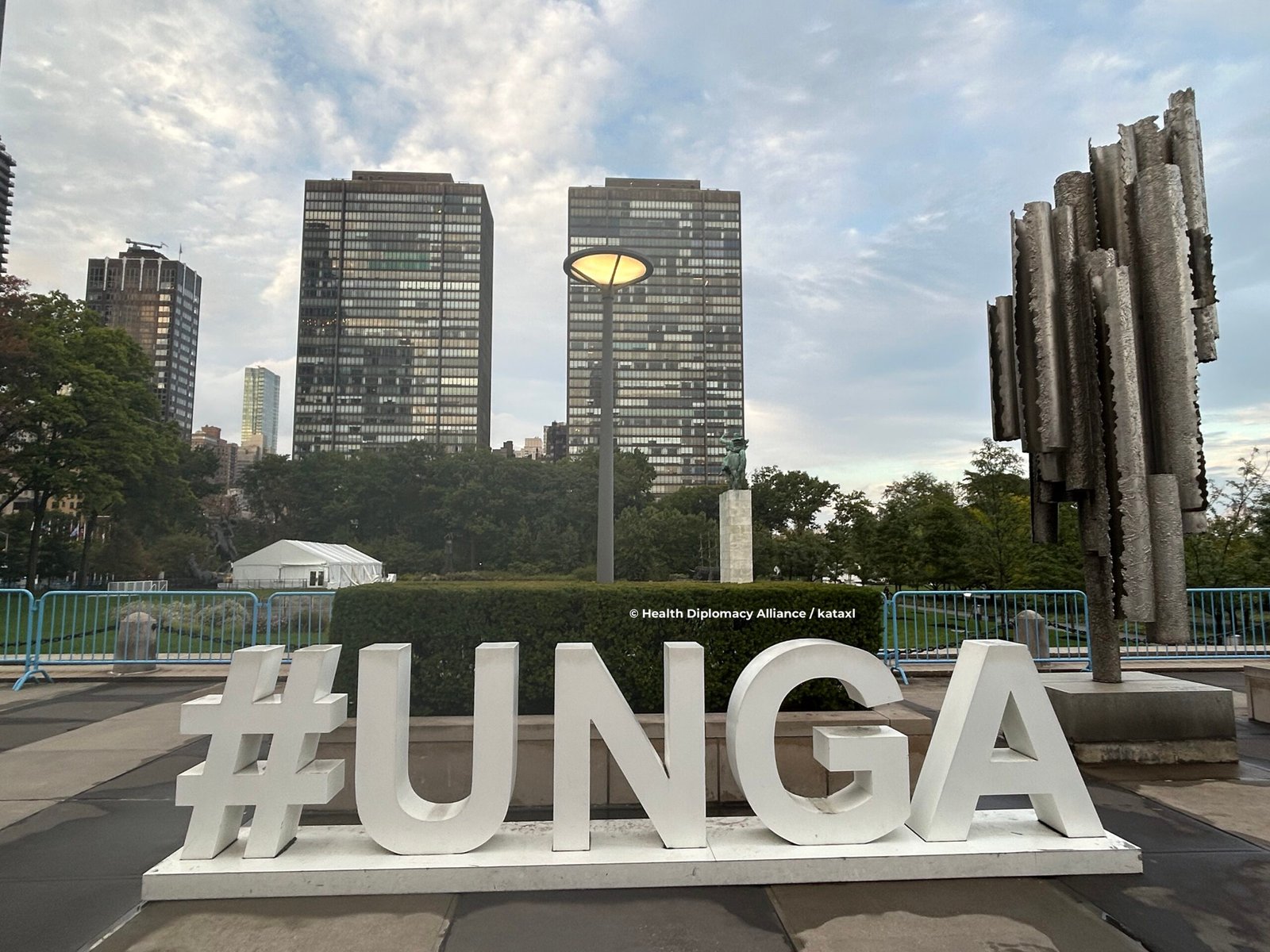UNITED NATIONS GENERAL ASSEMBLY
The 80th United Nations General Assembly took place in New York from September 9 to 28, 2025, and it put health diplomacy in the spotlight. This year’s high-level segment showed how changing global politics affects health governance, getting people to work, getting patients involved, and funding.
The Fourth High-Level Meeting (HLM4) on Noncommunicable Diseases (NCDs) and Mental Health, which took place on September 25, 2025, was a key event. It set big goals for lowering the number of deaths that happen too soon and making mental health care more available by 2030. The process, however, came to a halt when an opposition to the political declaration was presented, related to many aspects, including language related to gender and reproductive rights. That opposition showed weakness in governance, when it comes to reaching a consensus and how domestic politics affect multilateral agreements. The delay puts at risk and slows down the push for coordinated action against NCDs.
Along with official meetings, delegates had lively talks about the state of health financing. These debates stressed the need for long-term investment plans, better cooperation between states, and new ways to pay for things to fill in the gaps in health systems. Participants stressed the need to get health workers from all over the world to work together, make it easier for people to move across borders, and set up standard training programs. These steps were said to be necessary to fix the problem of not enough workers and make sure that everyone gets the same high-quality care.
The addition of patient voices was a new part of the talks. Patients advocated for their own views on lived experience, policy impact, and accountability. These discussions made it clear that patients wants be involved in health governance processes not just as a token gesture, but as a key part of how decisions are made.
There was also New York Climate Week from September 22 to 28, which linked climate change closely to health diplomacy. Informal talks focused on how environmental risks and public health are related, such as how climate change makes noncommunicable diseases worse. Policy approaches that combine making the health system stronger with making it more resilient to climate change.
Geopolitics was another important part. More than 150 UN member states officially recognized the State of Palestine, which changed the political landscape of the Assembly . These events happened at the same time as discussions about health diplomacy, showing that global health policy doesn’t happen in a vacuum but is affected by larger geopolitical trends.
The UNGA 2025 made a growing truth even stronger: to be effective, health diplomacy needs to include patients’ voices, make sure that workforce systems work together, find long-term financial mechanism, and navigate political swifts. 